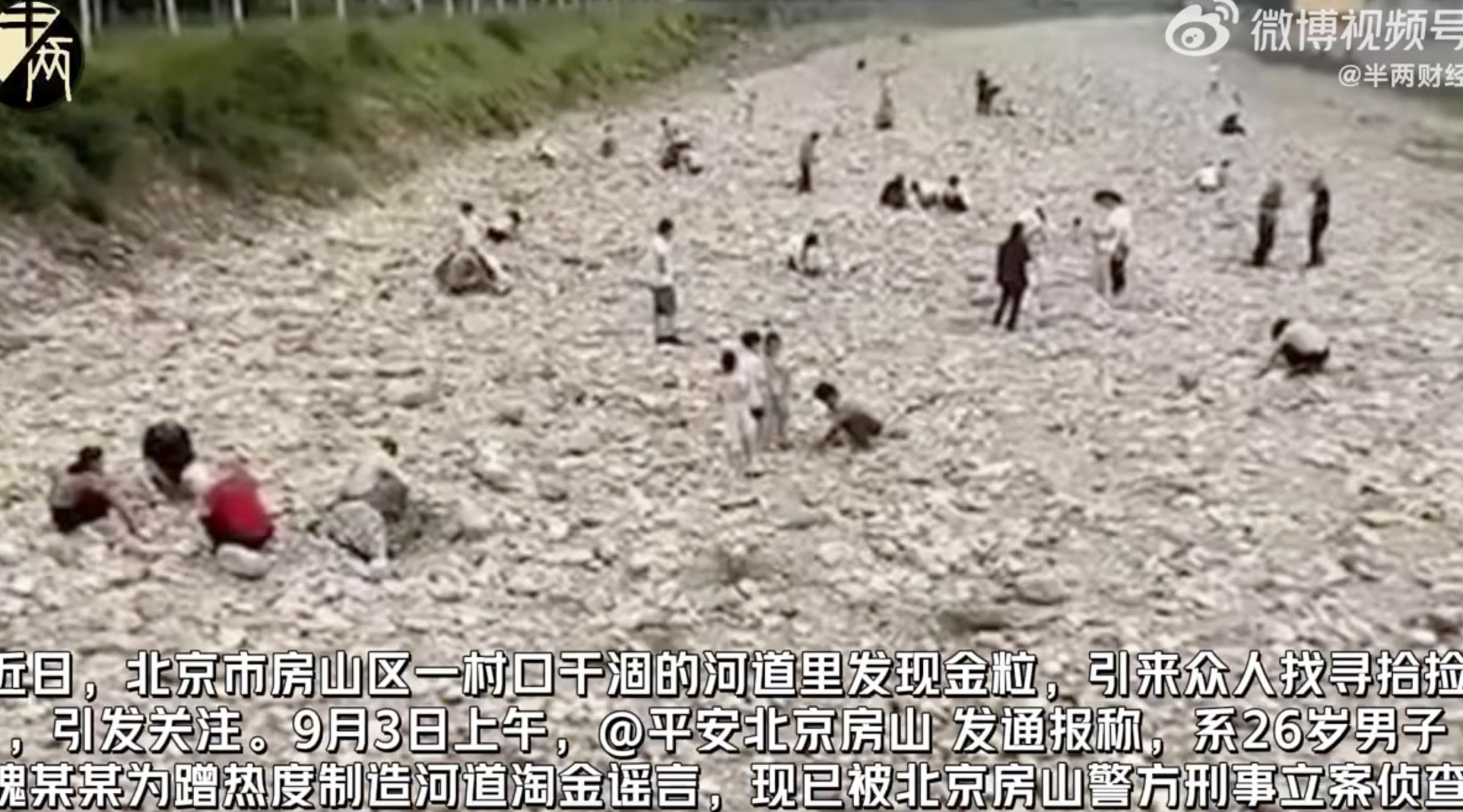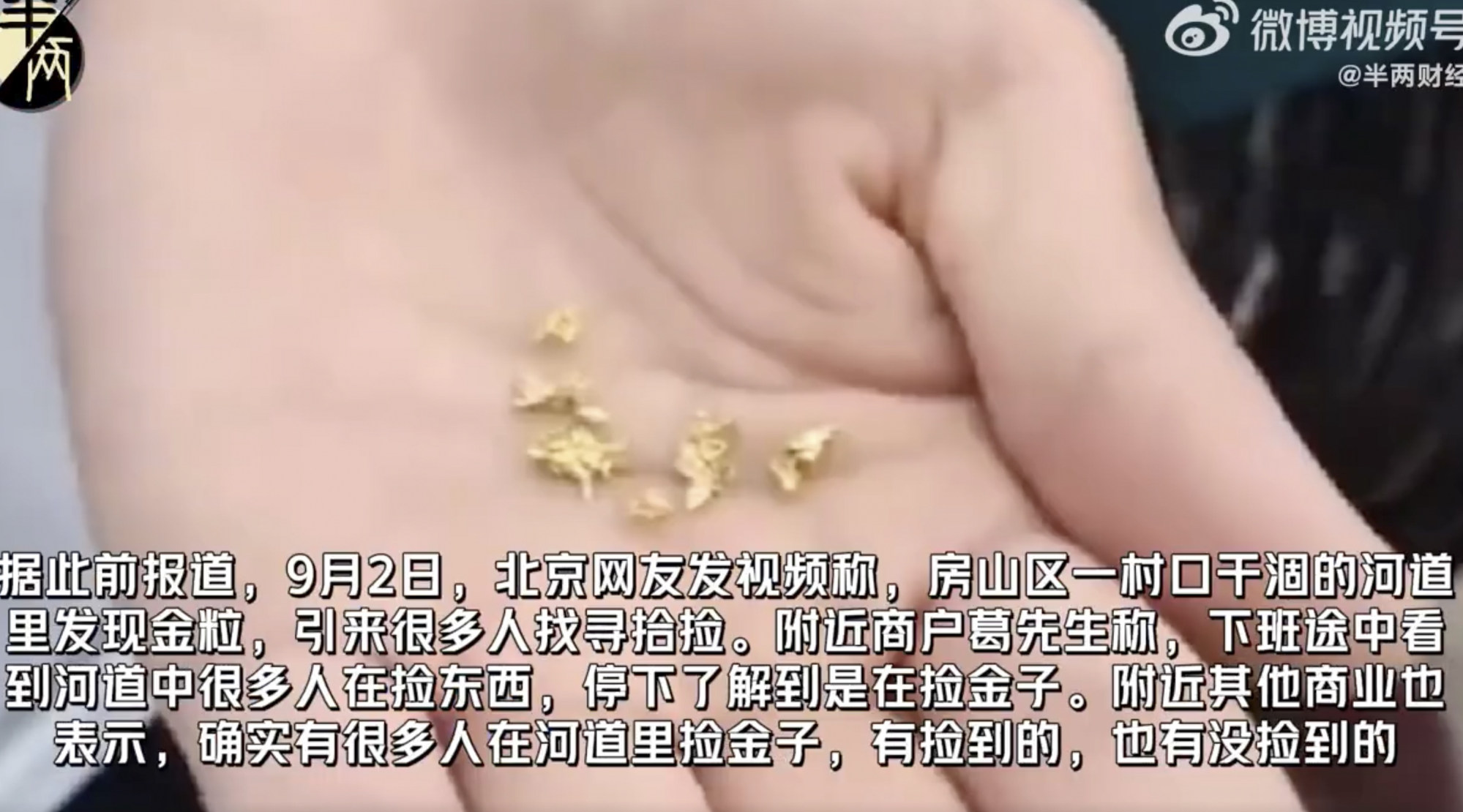
All that glitters: police detain man in China who scattered brass granules on dry river bed then spread ‘gold rush’ rumour to boost social media account
- Man uses different shaped and sized pieces of brass in attempt to make fake gold rush appear authentic
- Obsession with precious metal in China has led to a number of online rackets by people seeking social media fame
A man who tried to stage a fake gold rush in China to boost his social media profile is under police investigation.
On September 3, police from the Fangshan district of Beijing reported on its official Weibo account that a 26-year-old man, surnamed Kui, had been detained for “severely disturbing the social order”.
The post said that Kui spread granules of yellow brass then publicly announced that gold had been found in a dried-up river bed on September 1.
Officers said Kui created the gold rush rumour to boost his unidentified social media account.
According to a person on Weibo, hundreds of people were caught up in the gold rush fever and flocked to the location the man had pinpointed.

Some even shared videos of their searches for gold on Douyin, the mainland version of TikTok, in an attempt to hype their own social media accounts.
A gold rush trend has emerged at some Chinese tourist attractions this year.
Zhaoyuan city in eastern China’s Shandong province is known as “China’s gold capital”, an organiser pours 200,000 yuan (US$28,000) worth of golden beans and granules into the city’s river every month.
Visitors can then take part in a gold rush game after buying a ticket priced at dozens of yuan (a few US dollars).
According to another person on Douyin, some were attracted to the Beijing river bank believing that the gold was washed here by last month’s floods. Fangshan district was among the heaviest-stricken areas.
Recently, the price of gold stood at more than 450 yuan (US$60) per gram.
People on mainland social media backed the police investigation, with some expressing shock at Kui’s sophisticated scam.
“He even bought irregular shaped brass granules to make his story look authentic,” one person said on Weibo.
“Some online influencers have gone too far to attract attention,” said another.
“I pity those who spent all day searching for brass,” commented a third.

In recent years, some young people in China have saved money by buying golden “beans” that just weigh one gram. On China’s Instagram-like social media platform, Xiaohongshu, the hashtag #goldenbeans has more than 130 million views.
A report by Jiemian News quoted a person as saying they bought the “beans” because they were cheaper than gold jewellery.
A person who goes by the name Lanzimo told Jiemian News he felt “a sense of security” every time he shook the glass bottle that contained all the “beans” he collected.
“They are precious to me,” he said.

